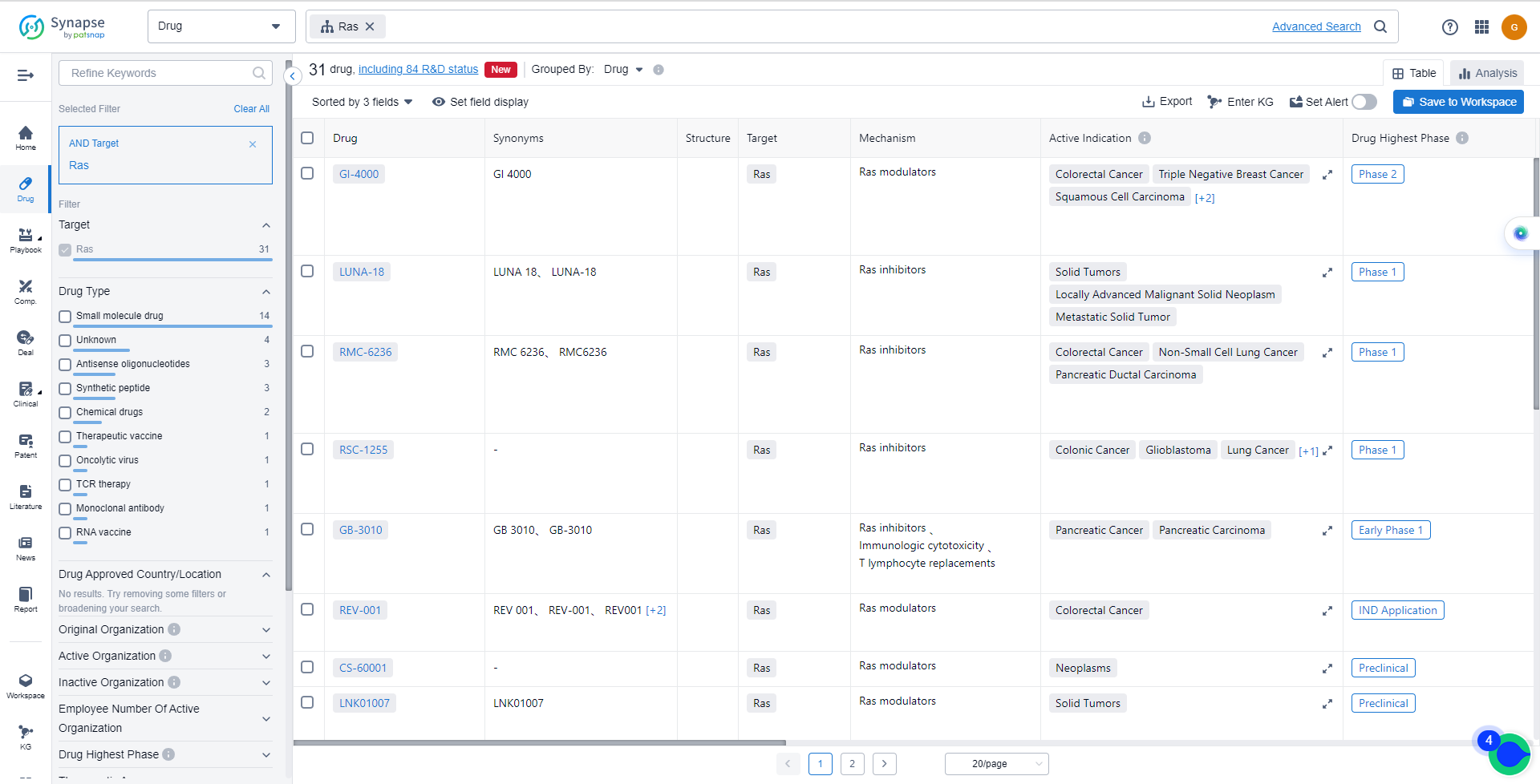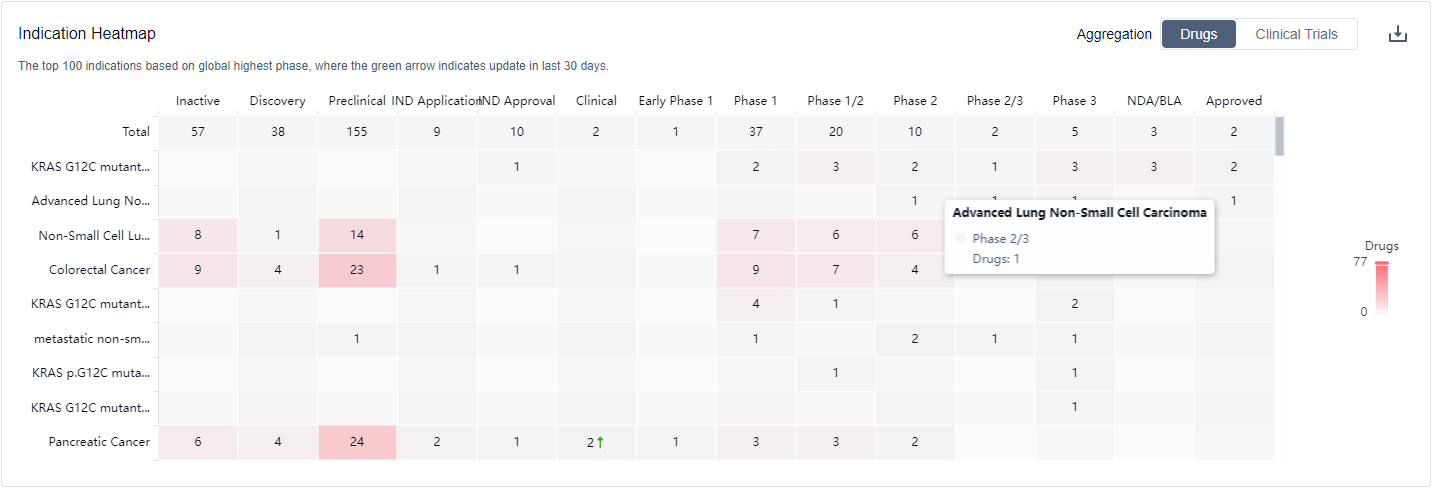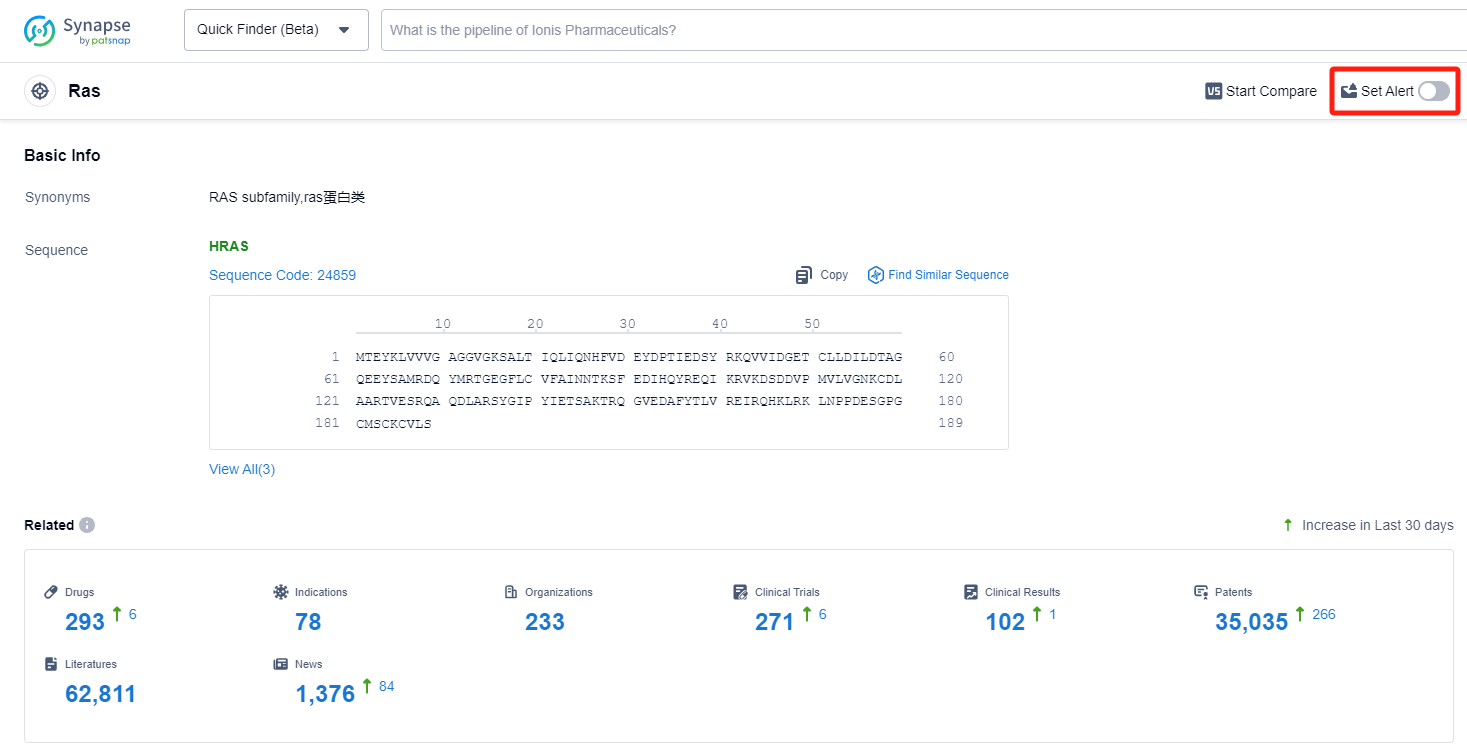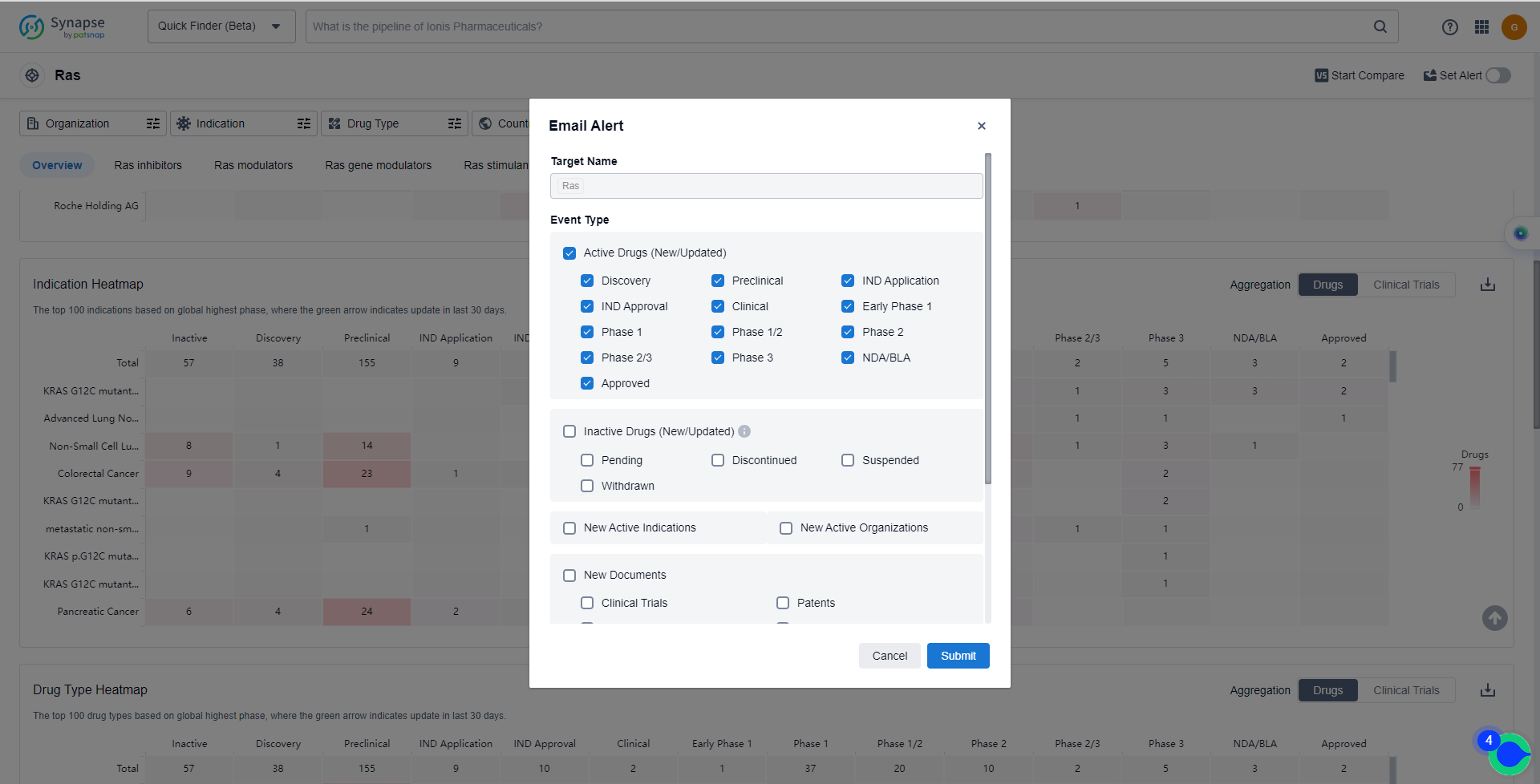Understanding Ras Inhibitors and Methods to Keep Abreast of Their Recent Developments
Ras proteins play a crucial role in cell signaling pathways within the human body. Acting as molecular switches, they regulate various cellular processes such as cell growth, differentiation, and survival. Ras proteins transmit signals from cell surface receptors to the nucleus, activating downstream signaling cascades that control gene expression and ultimately influence cell behavior. Dysregulation of Ras signaling is associated with numerous diseases, including cancer, where mutations in Ras genes can lead to uncontrolled cell proliferation. Understanding the role of Ras in the human body is essential for developing targeted therapies and interventions to treat Ras-related disorders.
The current competitive landscape of target Ras is characterized by the presence of multiple companies, including Mirati Therapeutics, Inc., Amgen, Inc., Innovent Biologics, Inc., Eli Lilly & Co., Novartis AG, and others, actively involved in the research and development of drugs targeting Ras. These companies are focusing on indications such as Non-small Cell Lung Cancer, Colorectal Cancer, Pancreatic Cancer, Solid Tumors, and others. The drug types progressing rapidly include Small molecule drugs, TCR therapy, Small interfering RNA, and Monoclonal antibody. The United States, United Kingdom, European Union, Japan, and China are among the countries/locations with significant progress in the development of drugs targeting Ras. The future development of target Ras is expected to witness intense competition, particularly in the innovative drug space, as indicated by the presence of biosimilars. Further research and development efforts are required to advance the understanding and treatment of Ras-related diseases.
How do they work?
From a biomedical perspective, Ras inhibitors are a type of drug that specifically target and inhibit the activity of Ras proteins. Ras proteins are important signaling molecules involved in cell growth and division. When Ras proteins are mutated or overactivated, they can contribute to the development and progression of various cancers. Ras inhibitors work by blocking the signaling pathways that Ras proteins are involved in, thereby preventing the abnormal growth and proliferation of cancer cells. These inhibitors are being actively researched and developed as potential targeted therapies for Ras-driven cancers.
List of Ras Inhibitors
The currently marketed Ras inhibitors include:
For more information,please click on the image below.
What are Ras inhibitors used for?
Ras inhibitors are used for Non-small Cell Lung Cancer, Colorectal Cancer, Pancreatic Cancer, Solid Tumors, and others. For more information, please click on the image below to log in and search.
How to obtain the latest development progress of Ras inhibitors?
In the Synapse database, you can keep abreast of the latest research and development advances of Ras inhibitors anywhere and anytime, daily or weekly, through the "Set Alert" function. Click on the image below to embark on a brand new journey of drug discovery!








